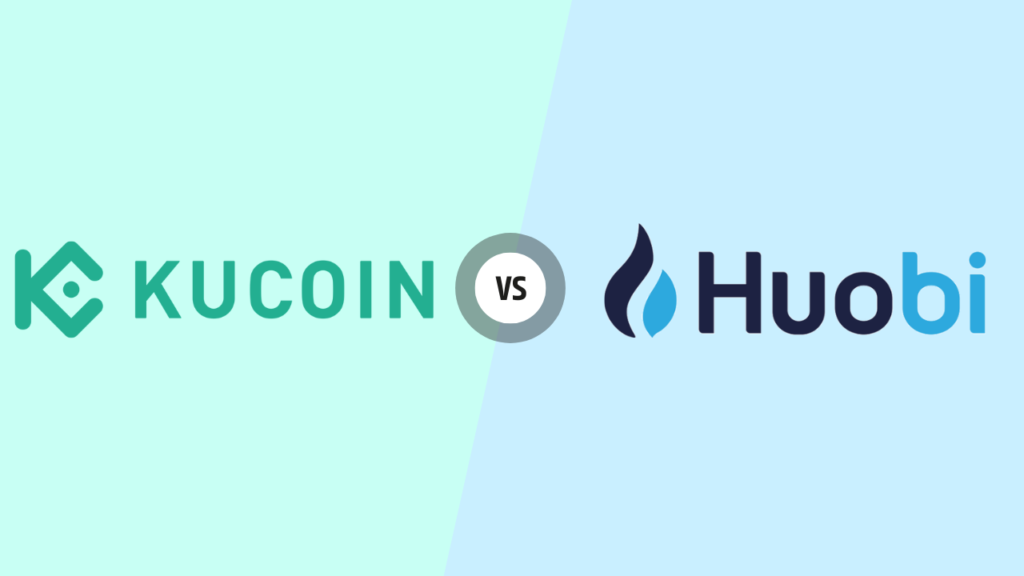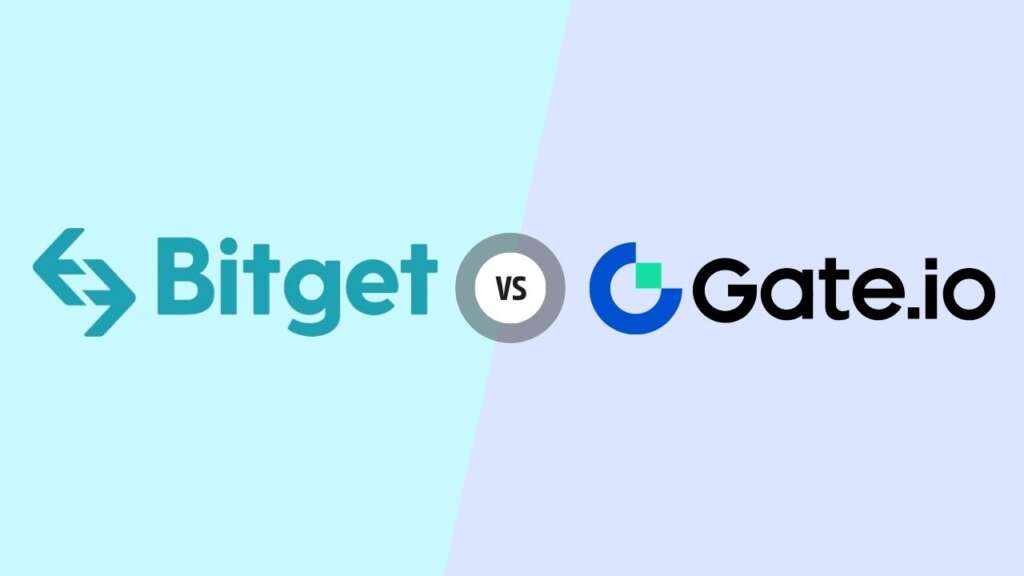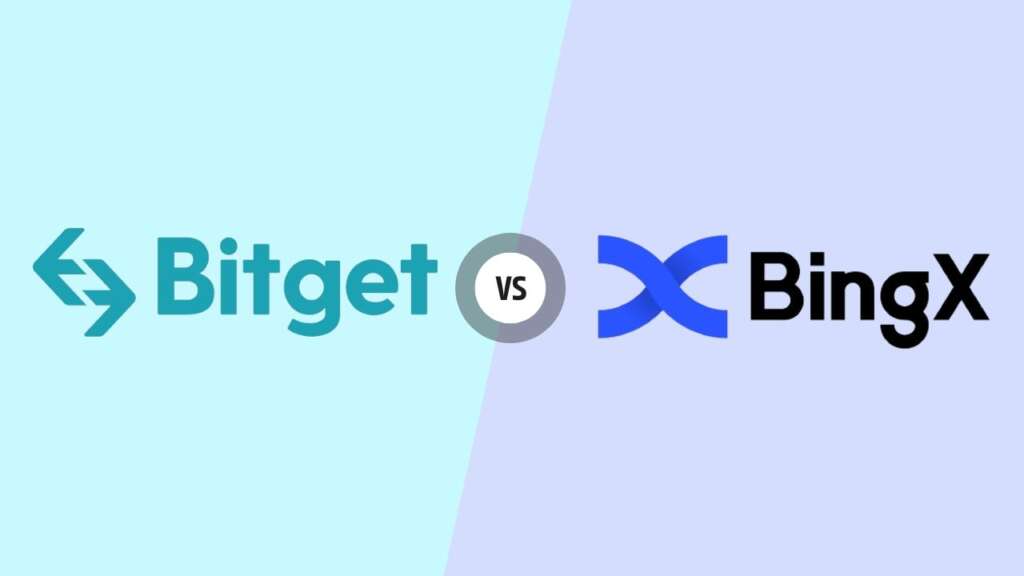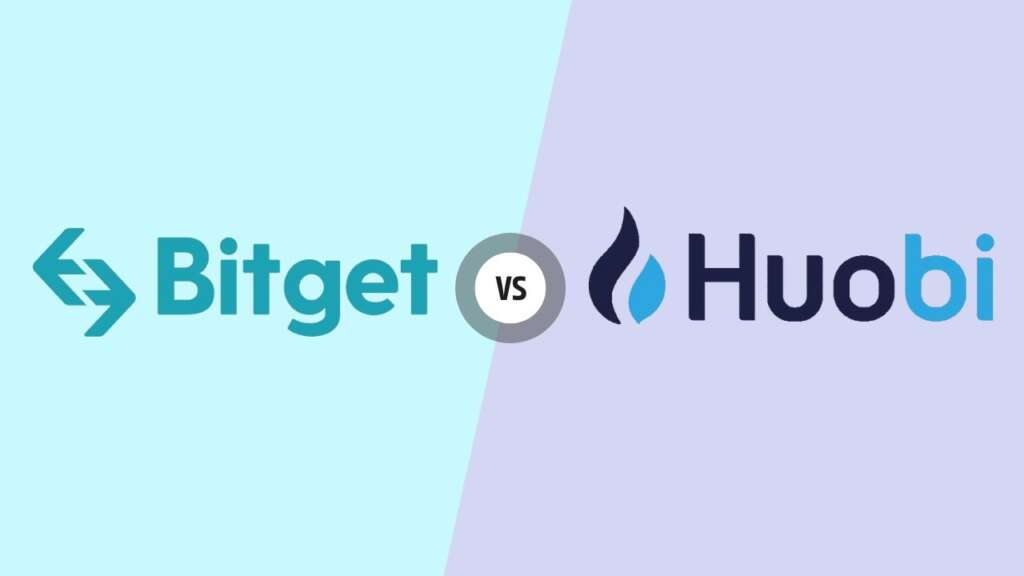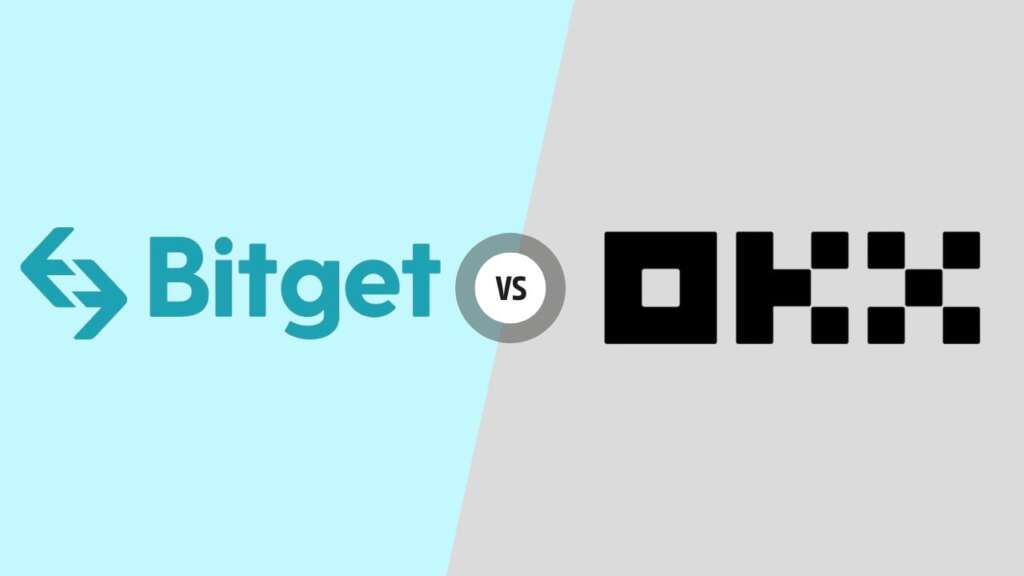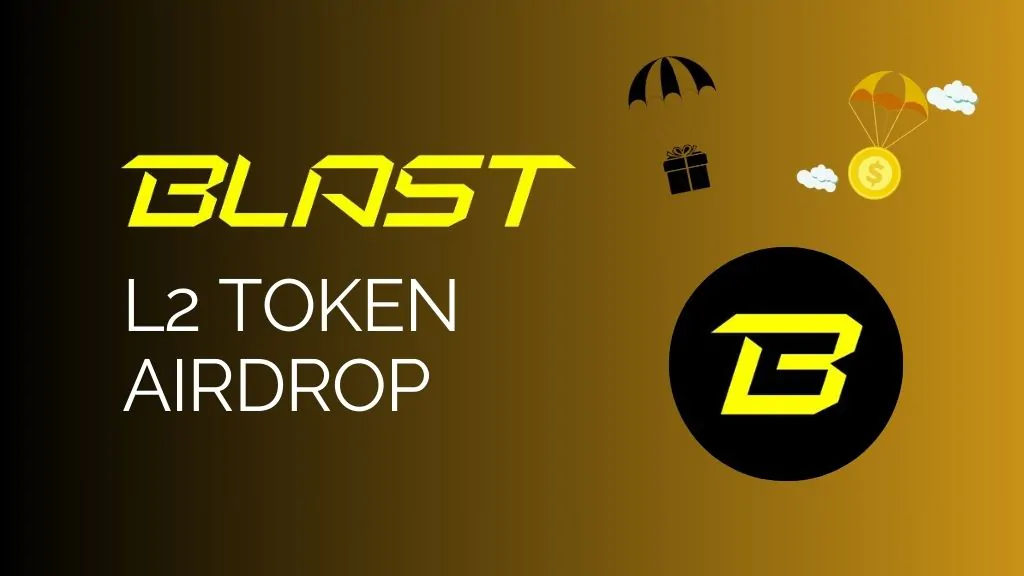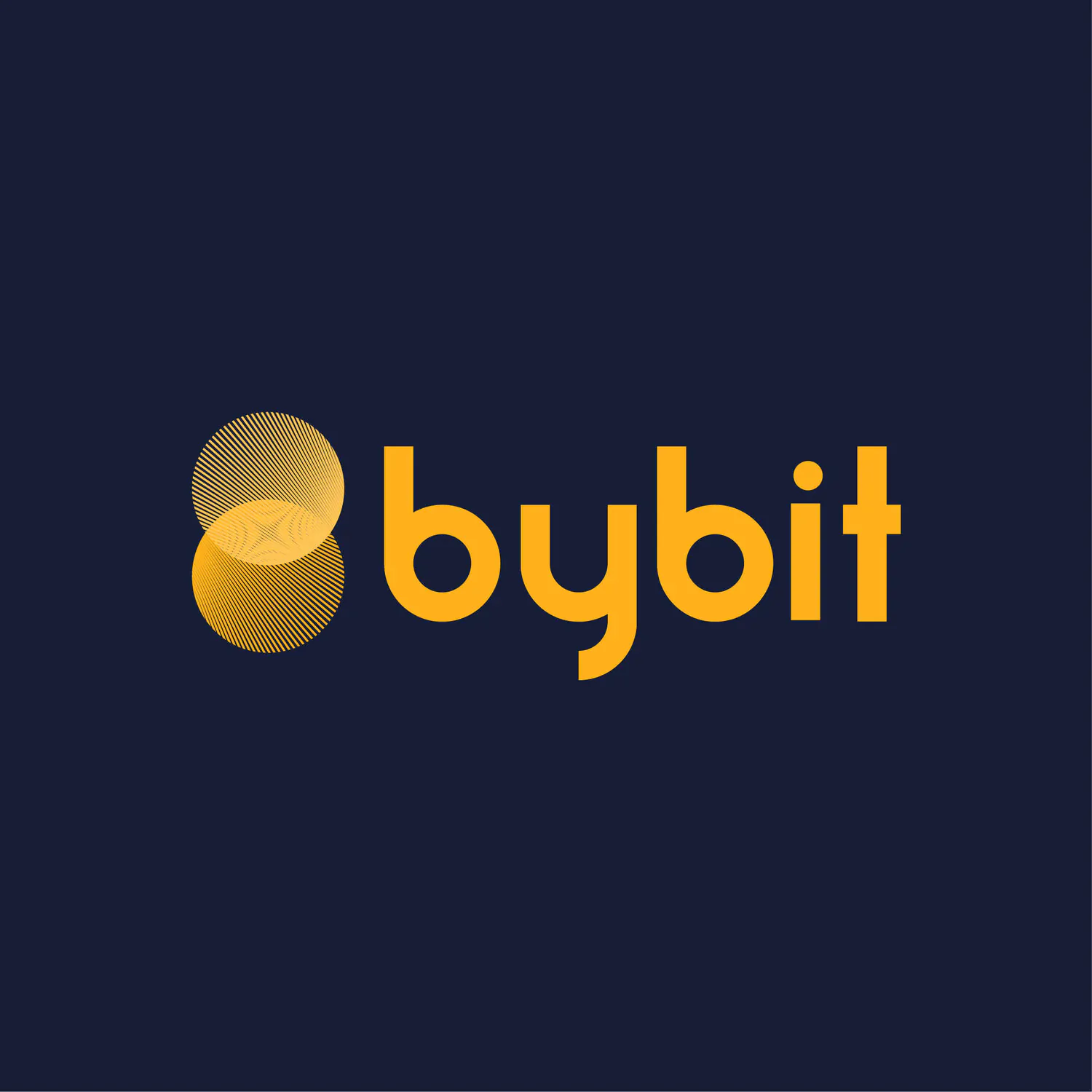Whether you are a new or experienced trader, the exchange you use influences your trading experience to a large extent. For this reason, you should have a good grasp of the exchange before trading cryptocurrencies there.
This article will explore two popular crypto exchanges, Kucoin and Huobi. These exchanges offer a platform to carry out a wide range of Crypto related products.
Huobi vs Kucoin Overview
Kucoin is a global crypto exchange founded by Michael Gan, and Eric Don, in 2016. The founders created the exchange after finding it difficult to trade Bitcoin on Mt. Gox, a popular exchange at that time.
Kucoin is headquartered in Seychelles. However, it has a global spread of over 200 countries. Regions like the United States, Singapore, etc., currently face limitations on using the exchange.
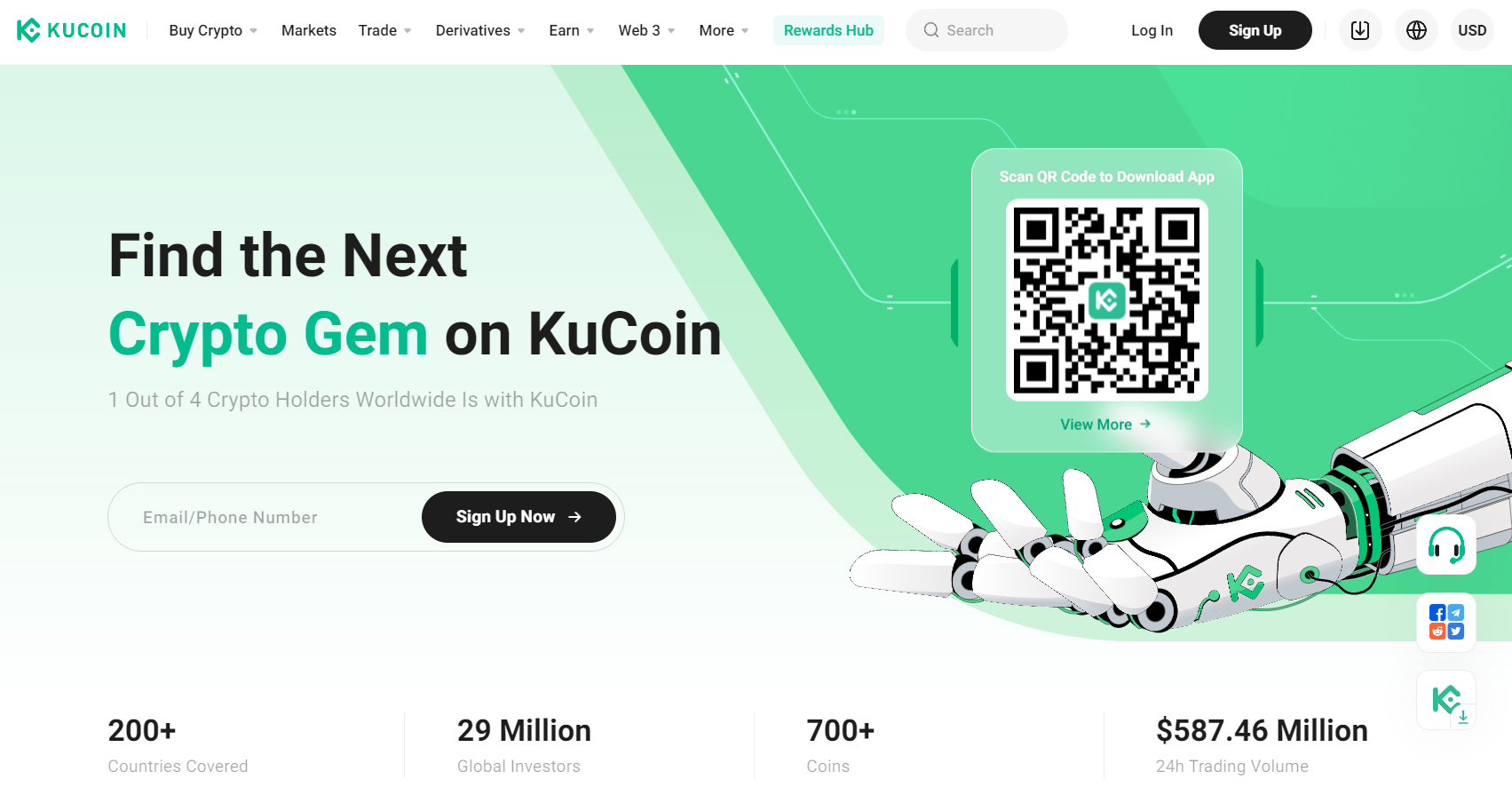
Kucoin has over 27 million users and more than 750 tokens for trading. The exchange also has a daily trading volume of $1.5 billion.
Kucoin has a mobile app for both Android and iPhone users. You can use the app to access their products and services like spot trading, futures trading, trading not, and NFT investment.
The app has over 10 million reviews and a 4.2/5 star on the Google play store.
Huobi is a popular crypto exchange founded in China. The exchange’s headquarters is in Seychelles, but it also has offices in Hong Kong, South Korea, Japan, and the United States. In addition, they operate in over 100 countries.
Huobi was founded in 2013 by Leon Li. Since then, they have grown to have over users on their platform.

Huobi has an extensive range of cryptocurrencies, with over 700 coins on the platform. They offer diverse trading products, including spot, futures, derivatives, NFT, copy trading, etc. The exchange currently has a daily trading volume of $1.3 billion.
Huobi also has a user-friendly trading app for both Android and Apple users. The app has over 10 million downloads and a rating of 4.1/5 stars.
Huobi vs Kucoin Signup and KYC
Kucoin
You can create an account on Kucoin using an email address or a mobile phone number. Shortly after providing your email address or phone number, you will receive a verification code in your mailbox or SMS. Next, enter this code, create a password, read through and agree to the terms of use.
Once you have completed your registration, the next step is to complete the Know Your Customer (KYC) session. You can’t use Kucoin products and services without completing your KYC.
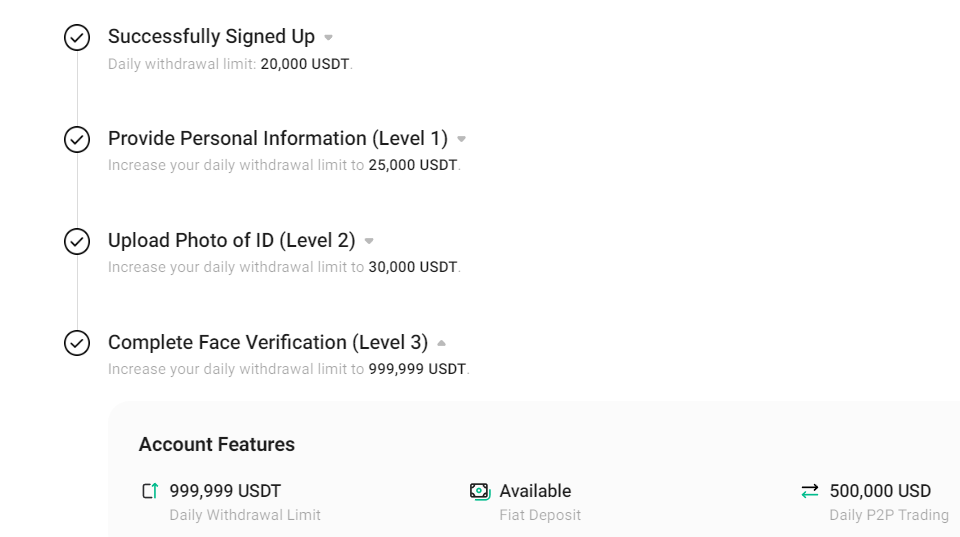
During KYC, you can verify your account as an individual or institution. The process is straightforward for both. However, they require different documents for verification.
An ideal KYC process on Kucoin involves three levels. You will provide your personal information in level 1. Level 2 and 3 requires photo ID uploading and face verification respectively.
Huobi
Huobi signup can also be done in two ways: the official website or Huobi App.
If you decide to go with the website, simply visit Huobi’s page. Click on the “Sign Up” button. Then, provide your email address or phone number and follow the verification steps.
It’s important to note that both methods require email verification and include security measures against bots for added protection.
It did not just end there; the next step for Huobi is the Know Your Customer process. It’s a three-level process.
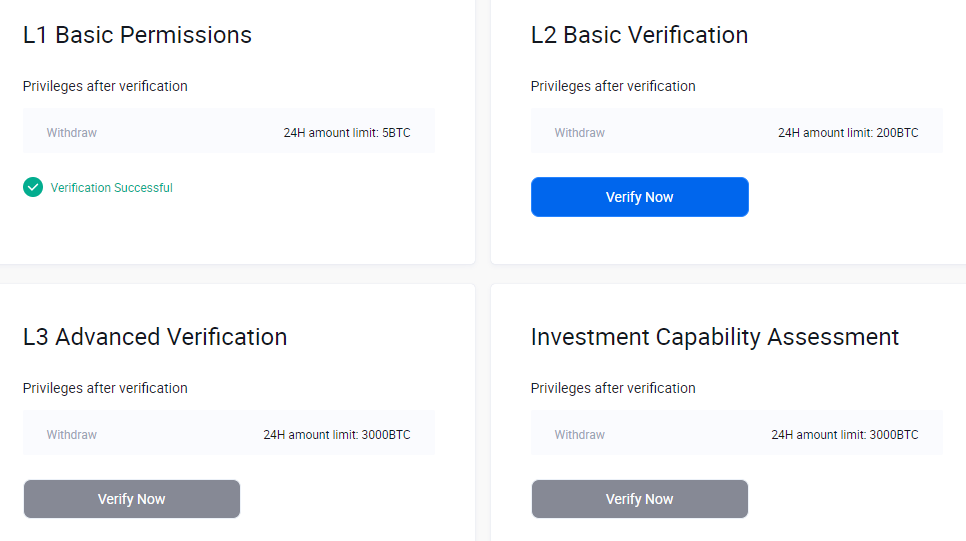
The first step is Level 1, and users can access the verification page via the app. They need to provide their information and submit it. Moving on to Level 2, they must select an identification document type and upload a photo.
Finally, for Level 3, facial recognition is required to gain platform privileges once approval is granted.
Huobi vs Kucoin Products, Services, And Features
Supported Coins
Kucoin provides an extensive array of nearly 700 cryptocurrencies for buying, selling, and trading.
This includes a list of top coins such as DOGE, BTC, ADA, UNI, ETH, USDC, USDT, BNB, XRP, USDC, DOT, and others. These features position Kucoin as a versatile choice for crypto traders and enthusiasts.
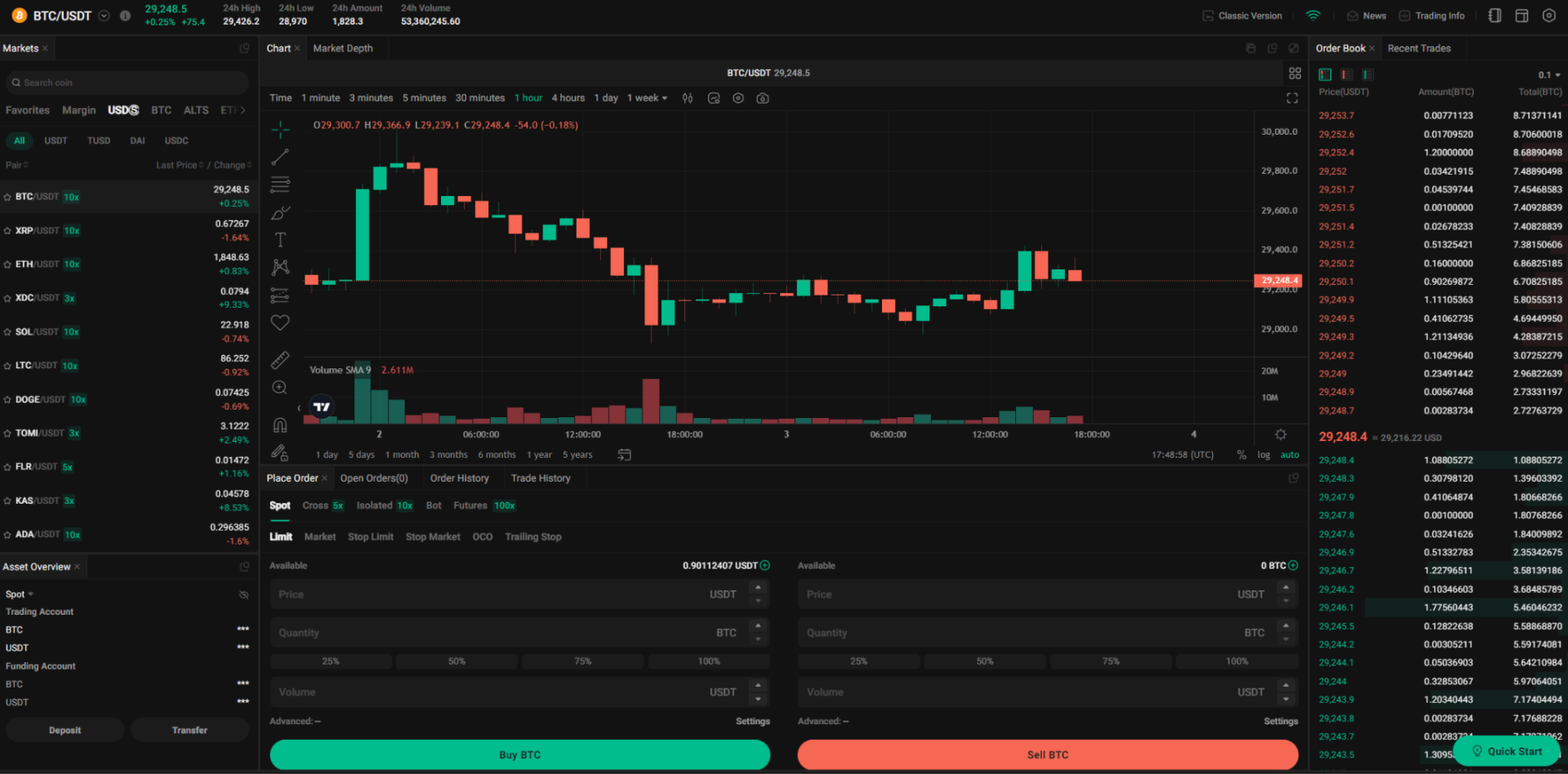
Huobi provides access to over 700 digital tokens and cryptocurrencies, catering to various investor preferences.
Among these are well-known currencies like Bitcoin, Dogecoin, Ethereum, Litecoin, Monero, Huobi Token, HUSD, and Tether.
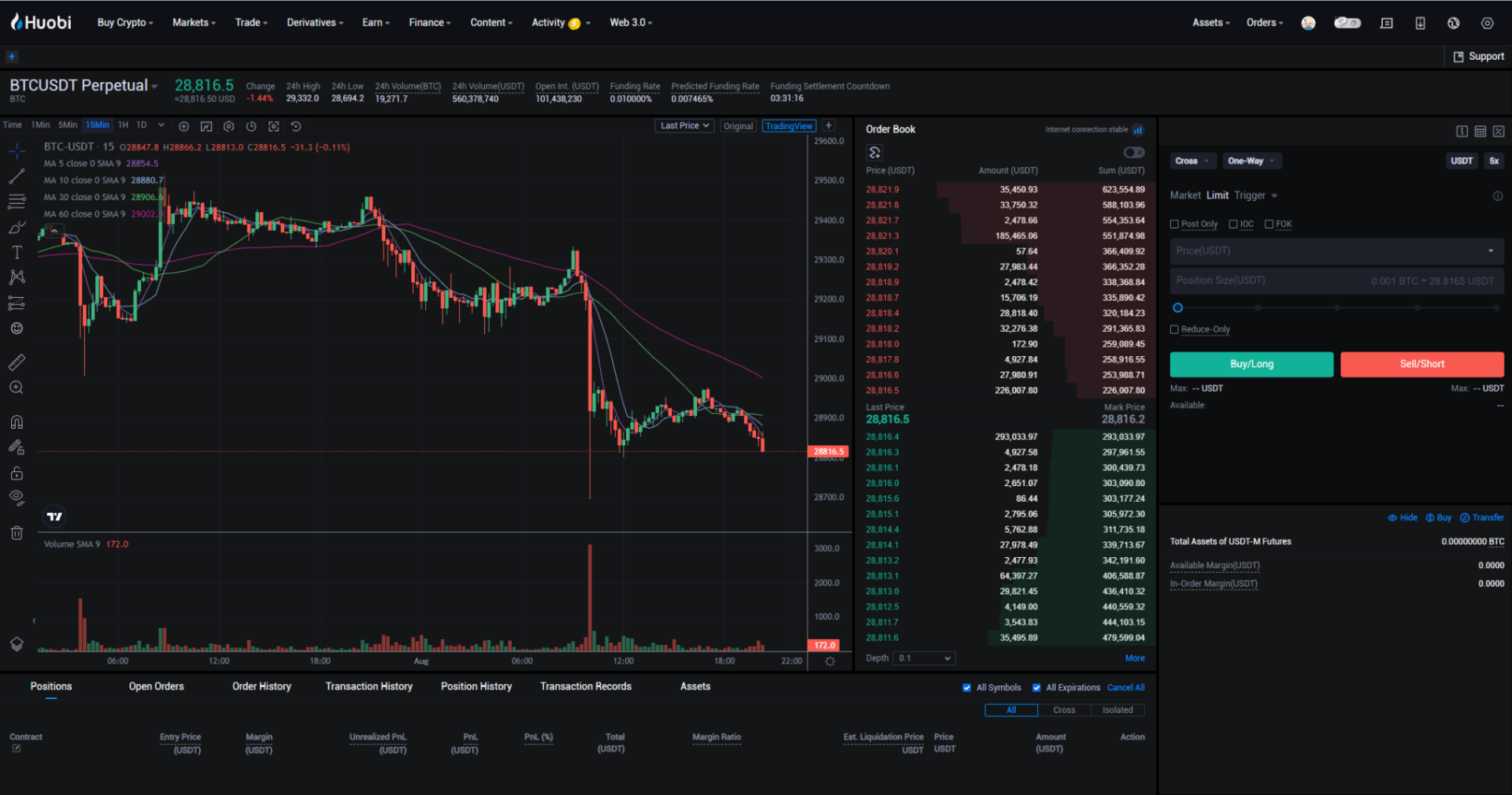
Trading Categories
KuCoin caters to novice and seasoned crypto investors, offering diverse markets, including spot, margin, options, futures, trading bot, leveraged tokens, etc. You can use up to 100x leverage when trading futures on Kucoin.
Moreover, Kucoin has an extensive Windvane NFT marketplace. Through this platform, users can invest in several NFT projects.
Huobi also provides a wide selection of trading products, including spot, futures, copy trading, NFT trading, and more. They offer a leverage of up to 200x for trading futures on the exchange.
Trading Interface
The Huobi Trading interface is not as user-friendly and responsive as Kucoin. Users can toggle between the dark and light themes when accessing the platform and easily navigate through their various trading pairs on the upper left.
The main screen showcases a dynamic chart of the chosen crypto pair, complemented by analysis tools such as ‘Original,’ ‘TradingView,’ or ‘Depth.’
Below this, traders can place and monitor various orders. On the right, an up-to-date order book and trading data provide a snapshot of market activity.
Meanwhile, KuCoin is a lot more user-friendly and responsive than Huobi. The platform has streamlined its contract list, allowing easy price and market movement checks and highlighting contracts with significant price changes.
Passive Income Products
You can earn passively with Kucoin without having to monitor the market constantly. This is done through their earn programs.
Kucoin earn program supports over 50 assets and there are various products on the program including, savings, stakings, flexible staking promotions, fixed staking promotions, etc. You can also create a trading bot and lend cryptos to earn passively on Kucoin.
Huobi also offers an earn program where users can passively earn an income. The program comprises fixed earning, auto-invest, staking, newlist features, and other products.
The Huobi Token lets users purchase newly launched tokens at discounted rates through Huobi Prime before they are listed, democratizing access to opportunities previously reserved for select investors.
Huobi vs Kucoin Trading Fees
The trading fees on Kucoin and Huobi vary across all trading categories.
Kucoin uses a tiered trading fee structure for spot. This means your trading fee depends on your trading volume. Level 0 traders pay 0.1% as both maker and taker fee. The fees decrease gradually even to a negative trading fee. Kucoin offers a 20% discount when you pay fees with their native token, KCS.

Huobi, on the other hand, charges a 0.2% base fee for normal use, which decreases as you increase the HT token in your wallet. However, they offer a different trading fee structure for professional spot traders. Here, your trading fee depends on your trading volume in 30 days. You pay a lower trading fee as your trading volume increases. Hence, maker fees start at 0.0362% and taker fees at 0.0462%.

Kucoin also offers a tiered fee structure for future trading. Level 0 pays 0.02% as maker fees and 0.06% for taker Fees. Huobi, on the other hand, charges 0.02% as maker fees and 0.05% as taker fees.
For spot trading, Kucoin is a lot cheaper, while Huobi has slightly lower futures fees.
Huobi vs Kucoin Deposit Methods
Depositing crypto on the Kucoin platform can take a few minutes to a few hours to reflect, however, it depends on the coin. They offer a free crypto deposit service. Huobi also offers a free crypto deposit.
A total of 28 fiat currencies are supported by Kucoin, some of which include; SEK, CHF, EUR, GBP, AUD, and RUB.
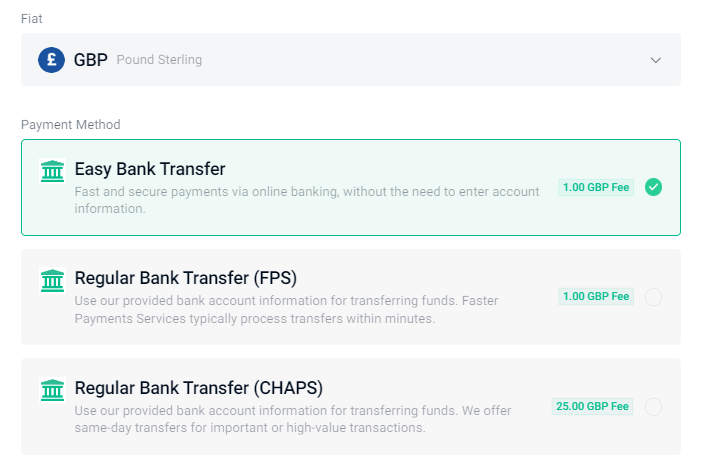
At KuCoin, most ways to deposit fiat money involve using Visa and Mastercard, which come with a fee of 3.8%. However, there are some exceptions, like the EUR, which can be deposited through a bank transfer, with a fee of 1 EUR. Other ways to deposit fiat currencies on Kucoin include, bank transfer, wire Advcash, etc.
Huobi only supports 8 fiat currencies, and the available options for EUR are SEPA (0.15% + 1EUR fee) and Skrill (2.9% + 0.1 EUR fee).

Kucoin has more deposit methods and lower fees than Huobi. So, they lead when you consider those factors.
Huobi vs Kucoin Withdrawal Methods
Kucoin’s withdrawal process is seamless as it only offers fiat withdrawals through SEPA for EUR withdrawals, and the fee charged for exchange is a 5 EUR fee. The fee they charge for withdrawal is small, and it is dependent on the coin and the selected blockchain network. They charge 0.01 ETH for Ethereum and 0.001 BTC for Bitcoin.
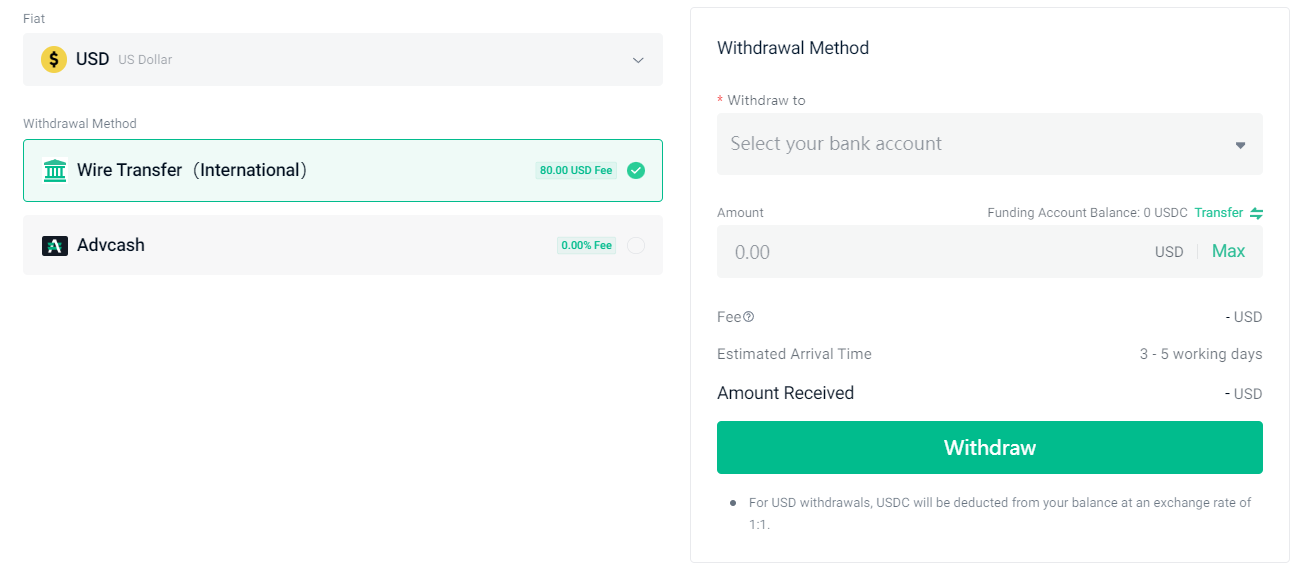
When withdrawing fiat from Huobi, options include FSP, Skrill, Advcash, SEPA, and Bank Transfer. Each method has distinct fees: SEPA charges 0.15% + 1EUR, Skrill is 2.9% + 0.1 EUR, FSP takes 0.15% + 1 GBP, whereas withdrawals in TRY through Advcash and BRL bank transfer don’t incur any fees.
Huobi vs Kucoin Security
A strong security architecture should be your top consideration when choosing an exchange. Here, we will talk about security measures put in place by both exchanges to protect user assets.
Security Compromise
In September 2020, KuCoin faced a security incident leading to a loss of more than $150 million in user funds. However, they bounced back almost immediately, retrieving most of the lost assets and tightening its security measures to avert similar future events.
On a brighter note, Huobi has remained free from cyberattacks due to its rigorous risk control system. The platform is bolstered by a dedicated safety management team ensuring its security.
Proof Of Reserves
To further prove its transparency, Kucoin provides independent proof of reserves that confirms that they have the needed funds to cover user assets. A third-party auditing company usually carries out this assessment. The report they recently posted shows that BTC has a reserve ratio of 104%, ETH 118℅, USDT 10,4%, and USDC 124%.
Similarly, Huobi has also conducted a proof of reserves audit. The exchange allegedly has an estimated $ 3.5 Billion worth of assets from the audit.
Account Security
KuCoin prioritizes security by implementing features like Google Authenticator for added protection. Additionally, after modifying key security settings, withdrawal services are locked for 24 hours, and users are advised to set an anti-phishing safety phrase to distinguish legitimate communications.
To safeguard users’ digital assets, Huobi prioritizes internet security by urging users to use strong passwords, avoid suspicious sites and links, steer clear of “free WiFi,” utilize antivirus software and VPNs, and enable 2-factor authentication. For optimal security of cryptocurrency assets, they encourage users to consider using cold hardware wallets like Ledger Nano S or Trezor.
Huobi vs Kucoin – Who Wins?
Kucoin and Huobi have established cryptocurrency exchanges offering various products and services. However, Kucoin stands out regarding a broader range of supported cryptocurrencies. Huobi, on the other hand, supports a higher number of fiat currencies and deposit methods.
Both platforms also offer a competitive pricing structure and security architecture. However, Kucoin provides a more straightforward and affordable pricing structure.
Despite how competitive both platforms are, Kucoin wins considering its wider range of supported cryptocurrencies, simpler fee structure, well-reported proof of reserves and its comprehensive fiat support. Furthermore, Kucoin is a lot more user friendly and responsive, making the trading experience a lot better compared to Huobi.
If you want to learn more about the exchanges, you can check out our comprehensive Kucoin review and Huobi review.
Kucoin is best for:
- Spot trading
- User friendliness
- Reliability
- Deposit/Withdrawal Methods
- Security
- Bot trading
- Passive income products
Huobi is best for
- Futures trading
- Copy trading

